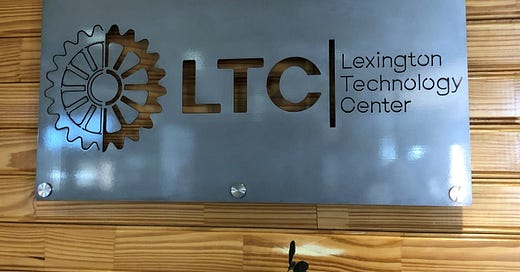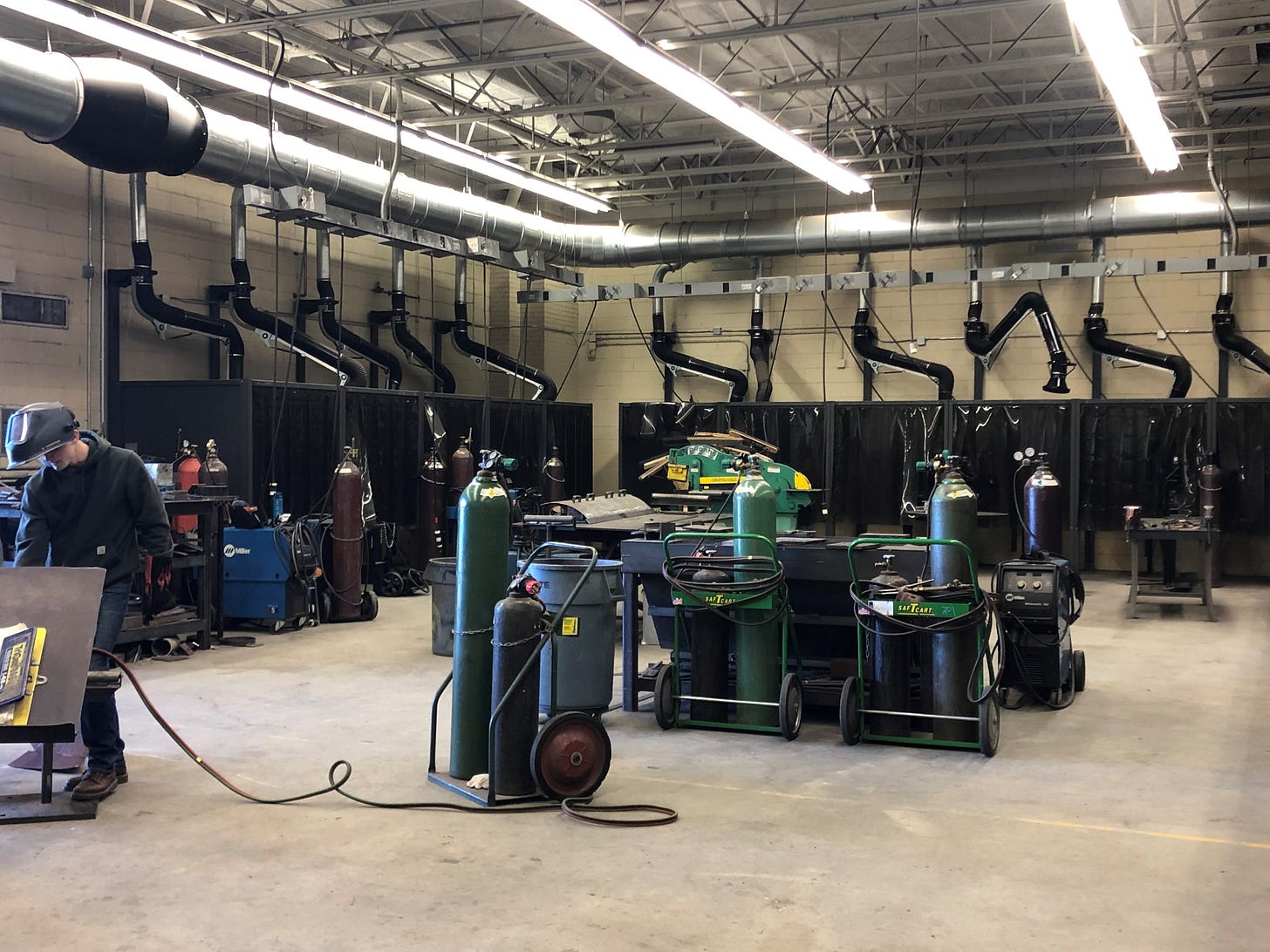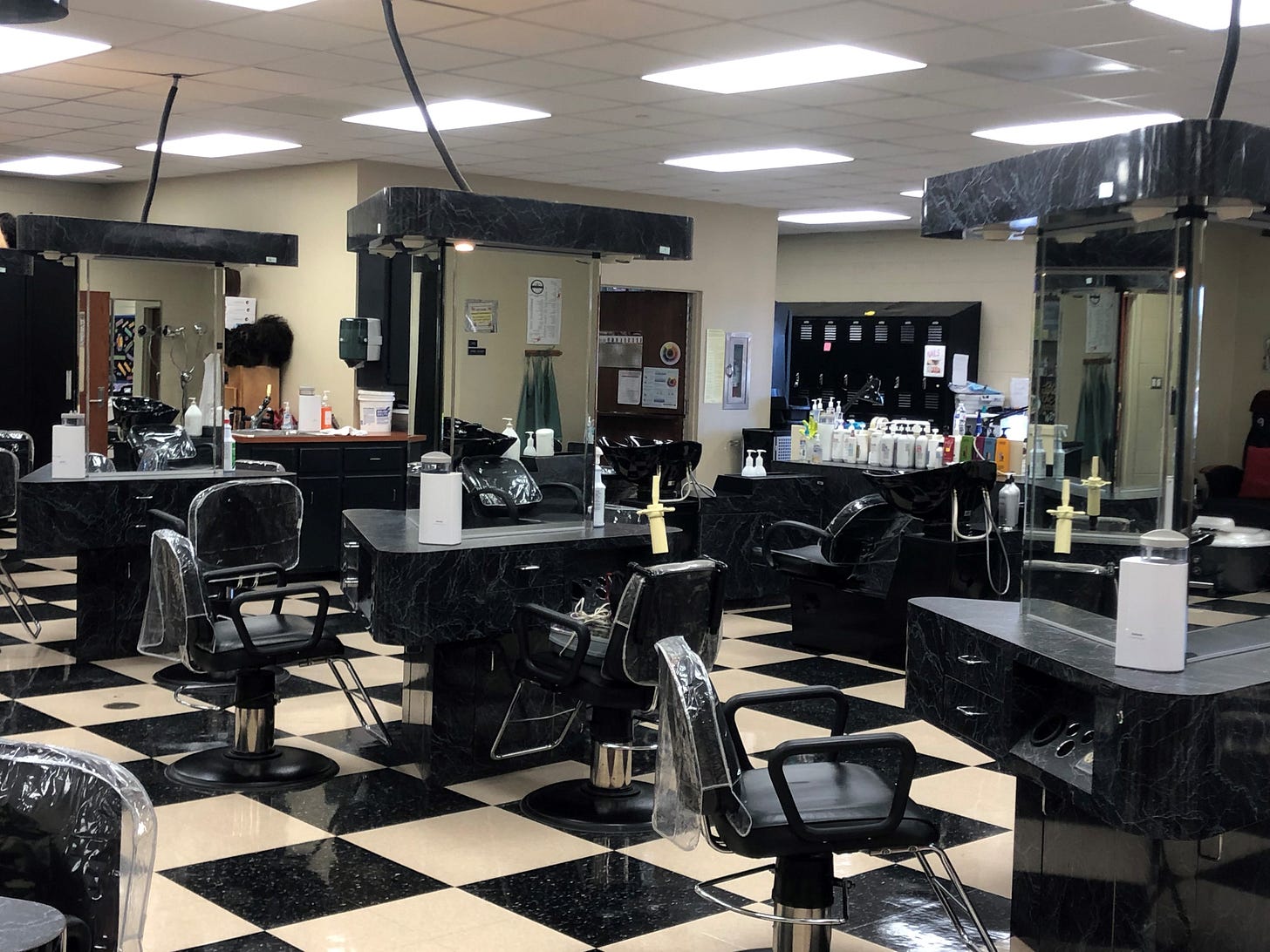You don’t need to wait until junior or senior year of high school to figure out how to get the education you need to get a good-paying job; most high school districts now feature Career and Technology Education (CTE) centers that cater to the students before graduation. These facilities offer training in STEM fields like robotics, engineering, CAD, and mechanical design, but they also train students in subjects that include auto mechanics, cosmetology, firefighting, agribusiness, culinary arts, and health science, just to name a few.
Michele Dennis, a Career Specialist at Lexington Technology Center (LTC), serves the students of Lexington School District One in Lexington, South Carolina. She recently provided insight into a variety of the offerings of LTC, which are similar to facilities of this nature around the country.
How does the center work? Do students choose between LTC and their current high school?
According to the fact sheet on the LTC website, “Participating students spend a portion of their day at the center and the rest of the day at their home schools.” What this means, Michele explained, is that students take core classes at their zoned schools and take a bus to LTC for the specialized courses they are choosing to take. Once in the program, there are a variety of field trips to local businesses to see first-hand what these professions entail.
What are some of the popular classes or certifications that students choose?
Health Sciences: This allows a student to graduate high school with a Certified Nursing Assistant (CNA) designation. This involves three classes plus clinicals, which entails work in nursing homes or other such facilities. The classrooms are set up as hospital rooms, and the students are taught to do blood pressure, weight, vitals, assist with movement, etc. — nothing with needles. After passing the state certification exam, CNAs can get paid experience while deciding if they want to go on to get advanced degrees in nursing or medicine.
Automotive Technology: This program, according to the website, “teaches students to become proficient in the maintenance and repair of automobiles.” Students in this class, along with those taking Collision Repair classes, can become ASE-certified; continuing into additional courses offers the chance to earn credit for up to three automotive classes at the local technical school. LTC also offers the auto students the opportunity to get real-world experience by allowing all district students and faculty to bring their personal vehicles in for repair and servicing for just the price of replacement parts. Win-Win!
Power Equipment Technology: These classes focus on small gas-powered engines. As described by the website, the introductory class focuses on repair and maintenance of lawn mowers, chainsaws, rotary tillers, motorcycles, pumps and compressors. Class Two moves into more complex engines like outboard boat motors and motorcycle engines. Similar to the Auto Tech program, Power Equipment Tech students can learn their trade working on personal items like lawn mowers and leaf blowers — even the occasional 4-wheeler — from faculty and students. Michele proudly related a success story from this program, saying that one of the instructors had a couple of former students open what is now a lucrative and well-known small engine repair business in town after going through the LTC program. Others have gone to work on outboard motors at a nearby marina through an available Yamaha apprenticeship program. Michele also marveled at the number of calls she gets at the school from companies as much as three hours away, looking for qualified students with small engine experience to hire after graduation.
Welding: Interested students can find three classes available to teach them all the methods of welding, plus how to read blueprints and design projects. Upon successful completion of all three courses, students can have earned as many as nine credit hours in welding at the local tech school. Work co-ops and apprenticeships are offered regularly.
Sometimes a project comes up that allows students in different areas to combine their efforts. Michele told of one such special opportunity that presented itself: LTC was asked to refabricate a golf cart for a Wish Child. The automotive students refinished the body of the cart, while the welding students did the fine detail work and the small engine class repaired and improved the engine. The students were proud to be able to use their newfound skills for such a worthwhile cause.
Building Construction: Continuing in the spirit of giving back, each year LTC students build a 3-bed, 2-bath house that is auctioned off in the community. Students learn every aspect of homebuilding in the course of the build; along the way, they get training for certifications that help them to become electricians and linemen, in addition to learning about carpentry, masonry, plumbing, reading blueprints, framing, roofing, and project management. There are opportunities for apprenticeships through community partnerships with the school, and after graduation the students can easily get jobs with local companies and can start a little further along on the pay scale because they already have the base-level knowledge.
There are too many more areas of study to mention in detail. The remaining programs include:
Agricultural Science (business of running farms, Vet Med certification available, work with Humane Society, also learn about foresty and wildlife management)
Culinary Arts (professional kitchens, students make staff lunch once each week, local apprenticeships available; one student started pastry business after taking LTC Entrepreneurship course and has product in local grocery stores)
Law Enforcement (they use an old Sheriff’s Dept. car for practice traffic stops and process crime scenes with teachers and students as suspects)
What if I’m in high school already and don’t know what I want to do?
Programs like those at Lexington Technology Center can save students (and parents!) money and give them a leg up on the competition. Students should never be afraid to explore new things when they are given the chance, especially when that chance is at virtually no cost, in fields where jobs are abundant and high-paying.
I’m not in high school — I run a local business and need experienced employees. How can LTC help me?
Employers should not overlook a valuable resource at their back door, a resource with a lot of energy and enthusiasm. Employers should embrace the opportunity to invest training in young workers who will be able to learn to do the work the right way, the way YOU want it to be done, with few bad habits to unlearn at that early stage.
I don’t live in South Carolina. Where do I find a program like this?
Go to your local school district’s website. There will likely be a mention of a Career and Technology Education Center of some sort, possibly under the listing of schools. If you don’t see anything like this, call the district office to inquire about it. If your district has no such offering, ask if there is a neighboring school district that will allow outside participation. Or start a campaign to create a CTE center in your own district!
The face of education is rapidly evolving — it’s time to embrace the change. We must ensure that the skilled workers we need tomorrow are being prepared today.







